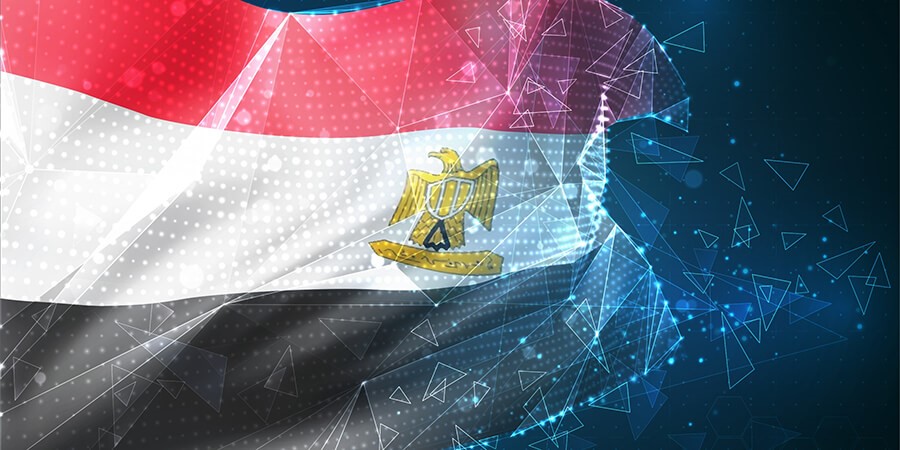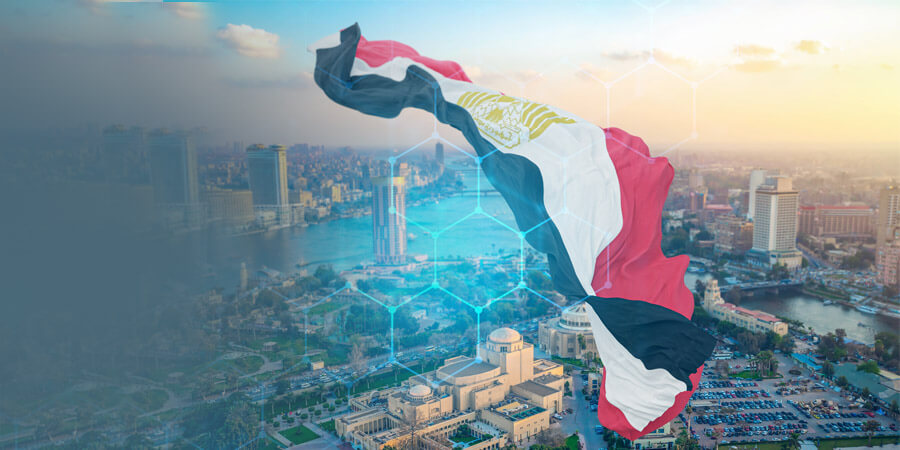Embarking on a journey of persistent progress, Egypt has undertaken a steadfast commitment to propel its Information and Communication Technology (ICT) sector into the future. With a visionary government leading the charge, the nation has strategically implemented a series of initiatives to attract investments, foster innovation, and ignite unprecedented growth in the ICT industry.
Infrastructure Development
Egypt has experienced a notable surge in internet penetration, largely fueled by the growing number of users accessing the internet through mobile devices. The country has proactively invested in expanding its fiber optic network to enhance connectivity and support high-speed internet services, contributing significantly to the overall advancement of the ICT infrastructure. Major players in the Egyptian ICT sector, including Telecom Egypt, Vodafone Egypt, Orange Egypt, and Etisalat Egypt, play essential roles by offering diverse telecommunication services encompassing both mobile and fixed-line services.
Meanwhile, the nation's burgeoning startup ecosystem, with a strong focus on technology and innovation, is supported by various incubators and accelerators, aligning with government initiatives to encourage entrepreneurship and innovation. For example, Egyptian Telecommunications Company WE (Telecom Egypt) has officially joined forces with Ora Developers Egypt in a strategic collaboration aiming to provide comprehensive communication services within Ora Developers' real estate projects. This partnership involves the delivery of an integrated communication services package, including landline telephone, high-speed internet, IP TV, and smart city services across residential, commercial, and administrative units in projects like Silver Sands and Zed East. The collaboration signifies a commitment to customer satisfaction and technological excellence, positioning both companies for a future marked by enhanced connectivity and innovation in the telecommunications landscape.
Digital Egypt
The Egyptian government has been proactively promoting entrepreneurship and innovation to enhance the startup ecosystem, particularly in the IT sector, where Egypt has gained international recognition for outsourcing services such as software development and customer support.
The Ministry of Communications and Information Technology (MCIT), established in 1999, plays a pivotal role in advancing Egypt's information and communications technology (ICT) sector. The ministry aims to cultivate a digital economy, contributing to the nation's genuine and sustainable development. The MCIT's objectives encompass fostering prosperity, freedom, and social equity through strategic ICT utilization, ultimately building a knowledge-based society and a robust digital economy.
Aligned with Egypt's Vision 2030, the ICT 2030 strategy outlines key components to transform the nation into a Digital Egypt. This comprehensive strategy emphasizes digital infrastructure, legislative framework, digital transformation, skills and jobs, and innovation, aiming for digital inclusion, a knowledge-based economy, capacity building, innovation promotion, cybersecurity, and international positioning. The envisioned 'Digital Egypt' seeks a balanced and diversified economy, ecological collaboration, sustainable development, and an enhanced quality of life.
Despite the government's commitment to creating a conducive regulatory environment and attracting foreign investment, challenges persist, including infrastructure gaps and the imperative for skilled workforce development. The government's pursuit of e-government initiatives reflects dedication to leveraging ICT for public service improvement and governmental efficiency.
Moreover, Digital Egypt, a central component of Egypt's Vision 2030 and digital transformation strategy, is a comprehensive plan initiated by the MCIT. It envisions transforming Egypt into a digital society and building a strong digital economy. The strategy includes:
- Digital Transformation: Efforts to shift government services and community ecosystems to a digital and data-driven format for faster and simpler public service delivery.
- Digital Infrastructure: Building and upgrading the national information infrastructure, including big data centers following high technical and insurance standards.
- Government-to-Government (G2G) System: Optimizing electronic sharing of data between government agencies to improve coordination and service delivery to citizens.
- E-Services: Development and launch of various e-services for entities such as law enforcement, notarization, personal status, family courts, and more.
- Digital Egypt e-Platform: A platform providing access to a wide range of public services through multiple channels, including a website, call center, post offices, and a mobile application.
- Electronic Signature: Establishing the Egyptian Root Certificate Authority for e-signatures, enabling remote access to services that previously required in-person verification.
- Digital Upskilling: Initiatives to develop citizens' capabilities, including training and building capacities for various segments of society, such as students, graduates, professionals, women, and Persons with Disabilities (PwDs).
- Digital Innovation: Fostering an ecosystem that encourages entrepreneurship, creativity, research, development, and innovation in the ICT sector, with effective policies involving various stakeholders.

Telecom Horizons: The Path to Progress
The Egypt telecom and pay-TV services market exhibited a valuation of $5.6 billion in 2022, with a projected Compound Annual Growth Rate (CAGR) exceeding 2% for the forecast period 2022-2027. This growth is anticipated to stem from the surge in mobile internet subscriptions and the adoption of advanced 4G services, fueled by the increasing usage of data-intensive social networking apps and video streaming platforms. The government's ongoing broadband network coverage expansion, particularly in technologies like FTTH/B and fixed wireless lines, is expected to contribute significantly to this market increase. The annual Egypt Telecom Services Market Outlook report provides a comprehensive executive-level overview, offering detailed forecasts up to 2027, encompassing key indicators, competitive dynamics, and regulatory trends in fixed telephony, broadband, mobile, and pay-TV markets.
In terms of market dynamics, Vodafone Egypt emerged as the leader in the mobile services market in 2022, driven by its strategic focus on a multi-line customer acquisition approach. Similarly, Telecom Egypt took the lead in both the fixed broadband and fixed voice segments. The regulatory environment also played a role in shaping the market, with the National Telecommunications Regulatory Authority (NTRA) taking action in December 2022 by shutting down unlicensed wireless networks to maintain voice service quality for consumers and ensure a well-regulated telecommunications environment. As Egypt continues to witness growth in mobile subscriptions, fixed broadband penetration, and pay-TV household penetration, the telecom services market is poised for a transformative period, underpinned by technological advancements and strategic initiatives by key telecom operators.
A Closer Look at the Patterns
In the early months of 2023, Egypt exhibited significant strides in digital adoption. The statistics reveal that Egypt experienced a growth of 1.2 million internet users (1.6%) from 2022 to 2023. However, 27.8% of the population, totaling 31.09 million people, remained offline at the beginning of the year. Furthermore, Ookla's data highlighted the improvements in internet speeds, with median mobile and fixed connection speeds registering at 22.17 Mbps and 45.79 Mbps, respectively. Mobile internet speed exhibited a notable increase of 4.90 Mbps, while fixed internet connection speeds grew by 10.12 Mbps during the same period.
Furthermore, despite revisions in data sources impacting social media user statistics, Egypt recorded 46.25 million users, equivalent to 41.4% of the total population. Analysis from various trusted sources suggested a continuous upward trajectory in social media use globally. In the mobile domain, GSMA Intelligence reported a substantial 7.2% increase, translating to 105.1 million cellular mobile connections, covering 93.9% of the Egyptian population. These insights offer a comprehensive understanding of Egypt's digital landscape, portraying a nation embracing connectivity and technological advancement in the digital era.
Overall, Egypt's ICT revolution is marked by significant strides in infrastructure, digital strategies, and a thriving telecom market. The government's commitment to fostering innovation and comprehensive digital transformation is evident. Digital Egypt, anchored in Vision 2030, is a roadmap for a connected future, despite challenges. The telecom sector plays a pivotal role in Egypt's progress, with Vodafone Egypt and Telecom Egypt leading in mobile and fixed services. Examining digital patterns reveals substantial growth in internet users, improved speeds, and a strong social media presence. Egypt is poised for further growth and innovation in the evolving landscape of information and communication technology.






